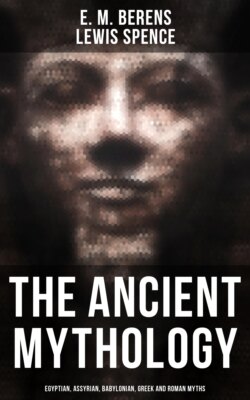Читать книгу The Ancient Mythology: Egyptian, Assyrian, Babylonian, Greek and Roman Myths - Lewis Spence - Страница 101
На сайте Литреса книга снята с продажи.
Bel
ОглавлениеWe find a good deal of confusion in later Babylonian religion as to whether the name 'Bel' is intended to designate the old god of that name or is merely a title for Merodach. Khammurabi certainly uses the name occasionally when speaking of Merodach, but at other times he quite as surely employs it for the older divinity, as for example when he couples the name with Anu. One of the Kassite kings, too, speaks of "Bel, the lord of lands," meaning the old Bel, to whom they often gave preference over Merodach. They also preferred the old city of Nippur and its temple to Babylon, and perhaps made an attempt at one time to make Nippur the capital of their Empire.
Hall in Assyrian Palace (Restored).
Some authorities appear to think it strange that Bel should have existed at all as a deity after the elevation of Merodach to the highest rank in the pantheon. It was his association with Anu and Ea as one of a triad presiding over the heavens, the earth, and the deep which kept him in power. Moreover, the very fact that he was a member of such a triad proves that he was regarded as theologically essential to the well-being of the Babylonian religion as a whole. The manufacture or slow evolution of a trinity of this description is by no means brought about through popular processes. It is, indeed, the work of a school, of a college of priests. Strangely enough Khammurabi seems to have associated Anu and Bel together, but to have entirely omitted Ea from their companionship, and it has been thought that the conception of a trinity was subsequent to his epoch. The god of earth and the god of heaven typify respectively that which is above and that which is below, and are reminiscent of the Father-sky and Mother-earth of many primitive mythologies, and there is much to say for the theory that Ea, god of the deep, although he had existed long prior to any such grouping, was a later inclusion.
